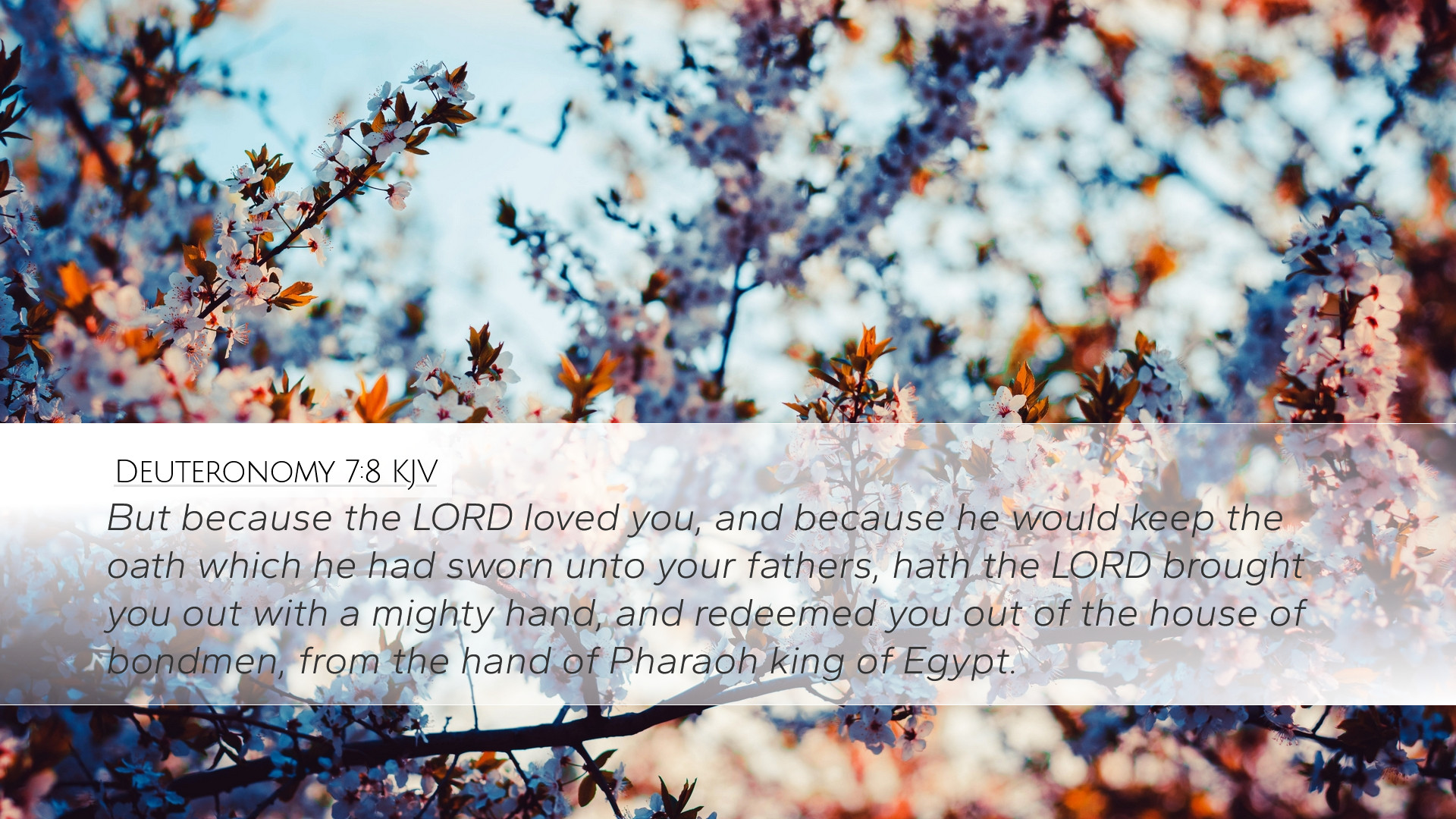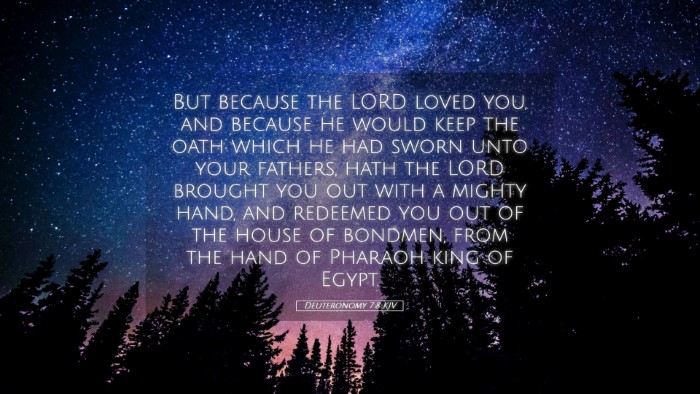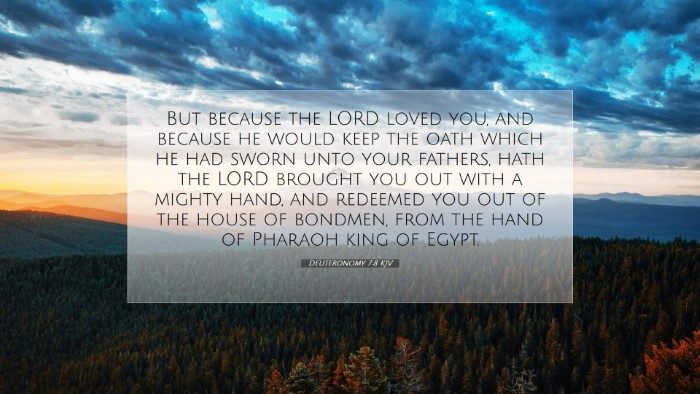Commentary on Deuteronomy 7:8
Verse Reference: Deuteronomy 7:8 - "But because the LORD loved you and kept the oath which He swore to your fathers, the LORD has brought you out with a mighty hand, and redeemed you from the house of bondage, from the hand of Pharaoh king of Egypt."
Introduction
Deuteronomy 7:8 serves as a compelling reminder of God's unwavering love and faithfulness towards His people. This verse encapsulates the essence of covenantal relationship that God holds with Israel and highlights both His initiative in salvation and the reasons behind His actions. Through insights from revered public domain commentators such as Matthew Henry, Albert Barnes, and Adam Clarke, we can gain a deeper understanding of this passage.
Theological Significance
At the heart of this verse is the profound truth that God's love is the foundation of Israel's redemption. Each of the expounded commentaries emphasizes the significance of divine love as the primary motivator in God's acts towards humanity.
Matthew Henry's Perspective
Matthew Henry notes that the love of God towards His people is not based on their merit or accomplishments, but rather originates from His gracious will. He points out that God's choice of Israel was an act of divine sovereignty and love. Henry elaborates that the phrase “kept the oath” underscores God's faithfulness to His covenant promises, reflecting His reliability as the ultimate source of redemption.
Albert Barnes' Insights
Albert Barnes reaffirms this understanding by discussing the historical context of the Israelites’ oppression in Egypt. He emphasizes that the deliverance was not only a physical liberation but also a demonstration of God's commitment to His covenant with Abraham, Isaac, and Jacob. According to Barnes, the mighty hand of God symbolizes divine power and action, ensuring that no human effort could suffice for such salvation.
Adam Clarke's Analysis
Adam Clarke expands on the meaning behind the "house of bondage," highlighting the metaphorical implications of slavery to sin and idolatry. He posits that this verse is not merely a historical account, but also a typological foreshadowing of spiritual deliverance through Christ. Clarke emphasizes that just as Israel was redeemed from physical slavery, believers today are redeemed from spiritual bondage through the work of Jesus Christ.
Key Themes Explored
- Divine Love: The unconditional nature of God's love is the foremost theme in this verse. It assures believers of their worth in the eyes of God, fostering an environment of grace rather than merit-based acceptance.
- Covenantal Faithfulness: The notion of covenant undergirds the relationship between God and His people. This theme is prevalent throughout the Old Testament and serves as a foundation for understanding New Testament theology as well.
- Redemption: The mighty hand of God signifies His powerful intervention in human history. The liberation from Egypt is a cornerstone event that establishes God as a redeemer, paralleling future acts of salvation through Jesus Christ.
- Historical Context: Understanding the circumstances faced by the Israelites provides depth to our comprehension of God’s actions. The reminder of bondage connects to larger themes of oppression and rescue that resonate across biblical narratives.
Practical Implications
For pastors and theologians, Deuteronomy 7:8 challenges the understanding of God’s character. It impels leaders to emphasize the grace of God in their teachings and to encourage their congregations to respond to God’s love with faithful living.
For students of the Bible, this verse acts as a crucial point of theological study. It offers rich material for exploring themes of grace, covenant, and redemption that recur throughout scripture.
Conclusion
Deuteronomy 7:8 serves as a powerful testament to God’s unwavering love and commitment to His people. When examined through the lens of various commentaries, this verse uncovers layers of theological depth and practical applicability. Understanding this verse's significance enhances our appreciation for God's redemptive plan that unfolds throughout Scripture, ultimately culminating in Christ’s finished work on the cross.
Reflection Questions
- How does comprehending God's love affect your spiritual journey?
- In what ways can you embody the love of God in your interactions with others?
- How can the themes of redemption in this verse inform your understanding of the Gospel?


